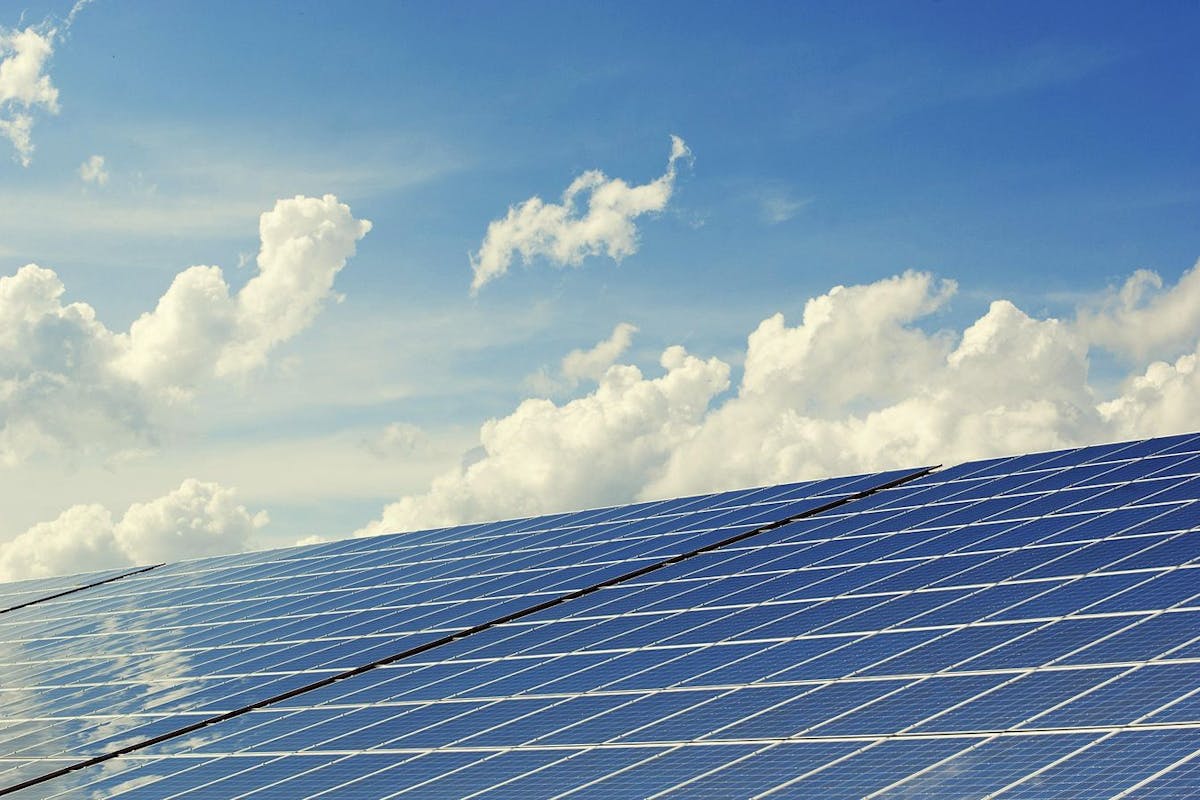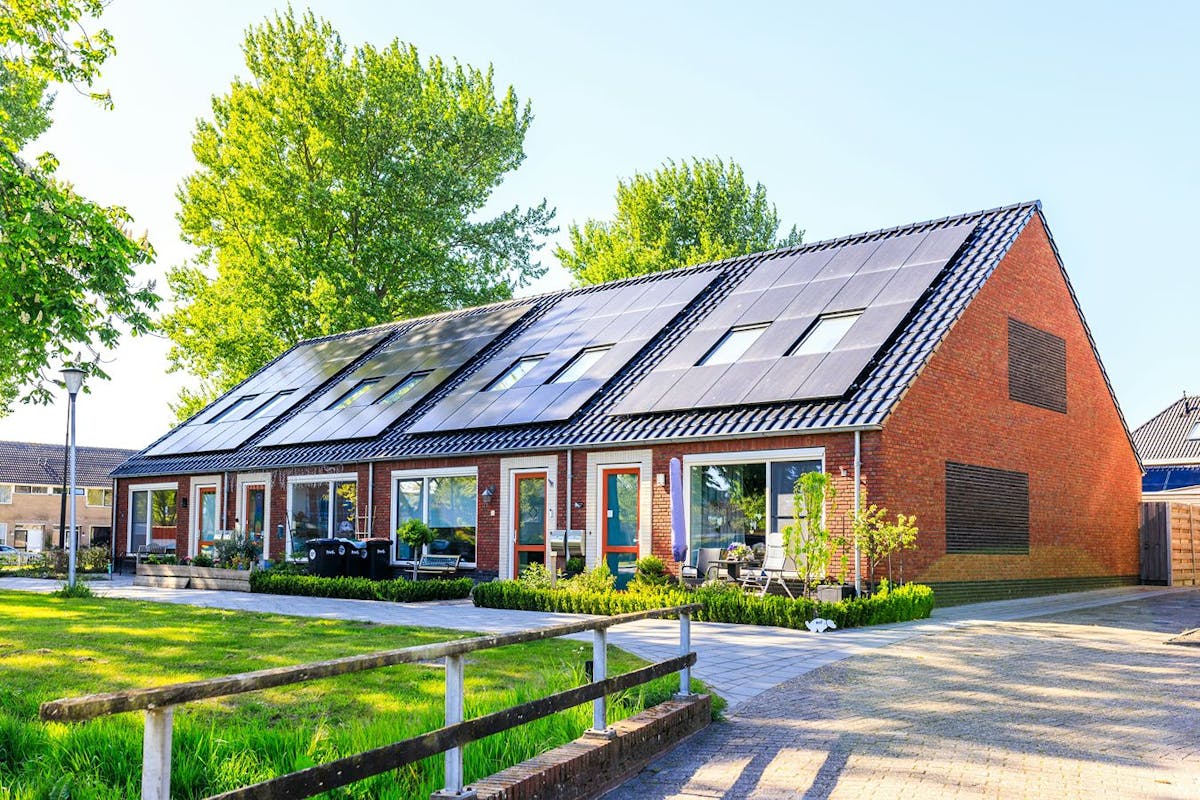Oversized Solar Energy Systems: Pros and Cons
Last edited

Author
Andrew Giermak
Solar and Electrification Writer and Editor

Editor
Andrew Blok
Electrification and Solar Writer and Editor

If you're considering home solar panels you might think, the more the merrier. If the power from 10 solar panels is going to save you money, think of how much you could save with 20!
Unfortunately, that's not how the savings math typically works. The right solar panel system size for your home is determined by a lot of factors that usually have more to do with how much electricity you use and your utility's solar policies, and less to do with building the biggest system possible.
Here's what you need to know.
See how much you can save by going solar with Palmetto
Solar Panel Installation Limits
In the United States, there is no limit on the number of solar panels that can be installed on a property and used to generate electricity.
For instance, if you were building the next great off-grid eco-retreat in the mountains of Montana, you can install as many solar panels and batteries as you like.
However, if your home is tied to the grid (which it almost always is), how many solar panels you can install will most likely be limited by your local building authority or utility service provider. In most of these instances, your solar installation limits will be directly related to the amount of electricity you consume on your property.
Your state’s or utility company’s net metering rules may limit the size of net metering-eligible systems. So while you may be physically and legally allowed to have more panels in your home system, it may not be smart financially to have a larger, more expensive system as it could disqualify your system for net metering and extend the solar payback period of a new system.
Limits for net metering eligibility are based on the system’s capacity in kilowatts (in direct or alternating current), or the max offset of the solar system compared to your home’s electric consumption. For instance, in North Carolina, with Duke Energy, the maximum system size is 20 kW AC and the maximum offset is 100%.
What Happens if You Oversize Your Solar System?
An oversized system is any installation expected to produce more than 100% of your property’s annual power consumption. Different states and different utilities have varying max offset rules for systems from no maximum restrictions to 100% and up to 200% of your home’s electricity consumption.
If you and your installer decide to oversize your solar energy system, it will likely produce more electricity annually than your home consumes – especially if you maintain the same usage habits on your property after the installation. With this surplus of solar power, net metering credits can minimize your electricity bills. In some areas, you might have an electric bill of zero, but in others you may still have a bill with solar, if it includes unavoidable utility charges.
Palmetto solar customers can track their solar production and energy consumption in the Palmetto app. If you don't have solar you can still find ways to save energy, track your energy consumption, and earn discounts on energy-saving devices.
See how much you can save by going solar with Palmetto
Should You Oversize Your Solar System?
You may be one of the lucky homeowners with the roof or yard space to host extra solar panels in a region it can pay off. An oversized solar system may have the following pros and cons.
Oversized solar system pros
- More solar energy: Who doesn’t love more solar energy? There are benefits of a little extra solar production – whether to keep utility bills low or to store extra energy in a solar battery onsite.
- Future-proofing: If you plan to electrify your home and decrease your carbon emissions as much as possible, extra solar can keep your ongoing power costs low while you’re prepared for electricity consumption increases from your new electric stove, heat pump, or EV.
- Reduced costs per panel: When considering the overhead costs of a solar project, adding a few extra panels may not dramatically increase your installation’s total cost, especially if your roof is relatively uniform. With extra production at reduced total costs per panel, oversizing your solar system can speed up your project's payback period.
Oversized solar system cons
- Increased costs: More solar capacity means higher upfront costs, and the project expenses for extra panels, wiring, mounting materials, and labor can add up quickly. Unless your extra solar panels can receive sufficient direct sunlight, their added output may not outweigh their upfront costs.
- Lower payouts: Before going solar, it’s important to know most utilities do not always pay full retail rates for the energy you send to the grid, especially at large surpluses. Therefore, if you are producing significantly more solar energy than you are using, you might not be able to make money with solar panels in the way you may have imagined. For instance, ultrafast payback periods are tough to achieve if your utility only compensates you for your surplus solar production at pennies on the dollar.
Pros and cons recap
| Pros | Cons |
|---|---|
| More solar energy | Increased cost |
| Lower price per panel | Possibly no greater savings |
| Ready for greater electricity use |
Building the Right Home Solar System for You
An oversized solar panel system can be a way to increase your renewable power production and maximize your home energy investment. By finding the ideal available solar panel capacity for your home and your energy needs, you may be able to get more bang for your buck during your installation.
If you would like to see your potential savings with going solar, use our solar savings calculator and we’ll get started on designing the perfectly-sized solar energy system for your home.
See what solar can do for you:
Frequently Asked Questions
What is the average solar panel system size?
A typical home needs 18-26 solar panels to generate about 100% of its average electricity usage. Many factors can change this number. Your power consumption, climate, financial goals, utility or state policies such as net metering, and roof design are some usual factors.
How big is a 10 kw solar panel system?
A 10 kilowatt system is a fairly large solar system for a home system. A 10 kw system will need 24-34 panels depending on the panels’ size. Depending on the shape and orientation of your roof, 24-34 panels, at 15 square feet per panel, will need 360-510 square feet of roof space.
What happens if you oversize your solar system?
There are pros and cons to oversizing a home solar system. You may save money and, with a solar battery system, have excess, stored energy. On the other hand, oversizing a system too much may give you a larger upfront expense that takes longer to recoup.
Disclaimer: This content is for educational purposes only. Palmetto does not provide tax, legal, or accounting advice. Please consult your own tax, legal, and accounting advisors.


